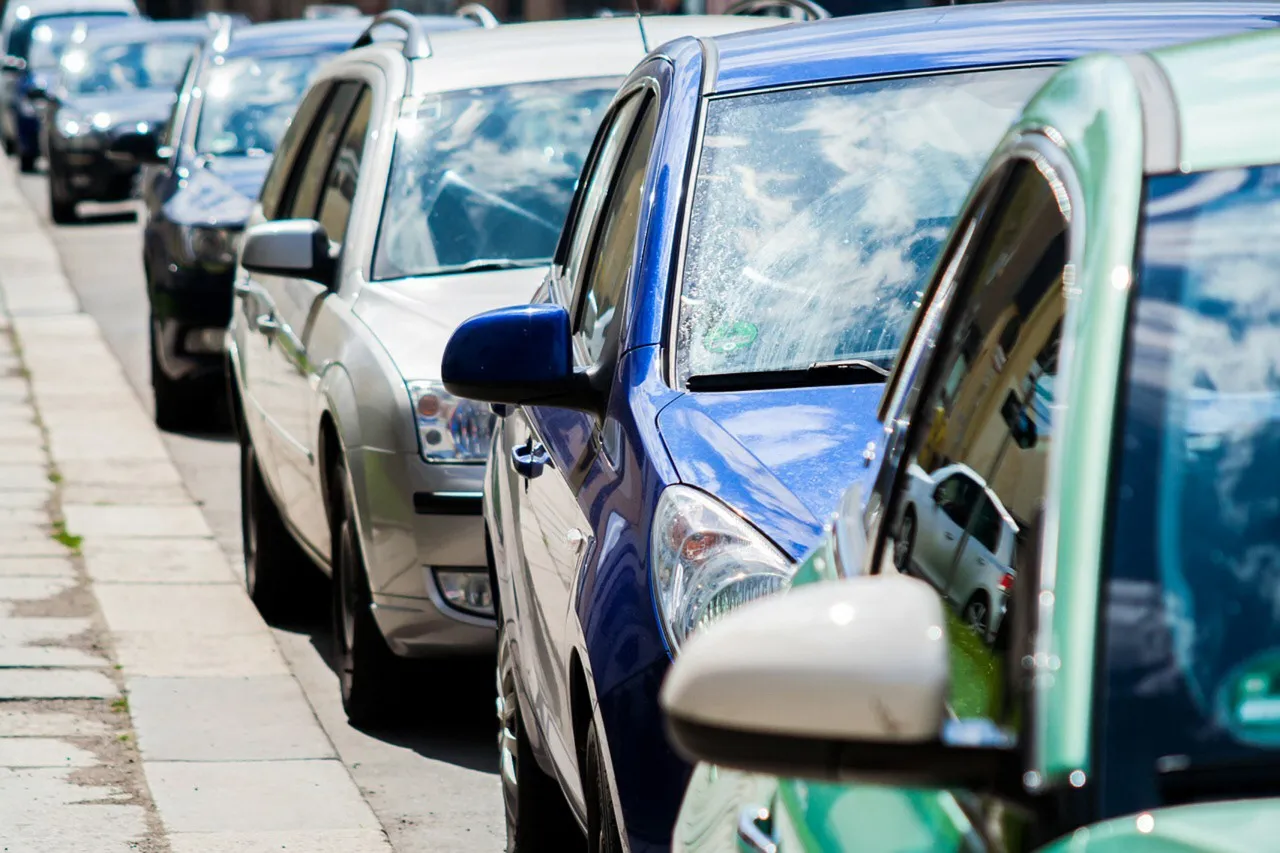From the fees levied at many hospitals and in local high streets, to finding a space in multi-storey car parks, in increasingly congested urban centres and even outside one’s own home where pavement positioning may be a necessity, parking is a challenge faced by many motorists on a regular basis, no matter what car they drive. We discuss the latest news and views surrounding parking in the UK, concluding with some potential solutions from OEMs and tech’ pioneers.
ARE LOCAL AUTHORITIES PROFITING FROM PARKING?
In the UK, parking is a subject broached frequently in conversation and to motorists who often feel burdened by rising road tax, fuel and congestion charges it’s understandably vexatious when reports emerge such as the RAC Foundation’s analysis in June 2019 that almost £1 billion each year is amassed as a surplus by councils in England1. Many London borough councils were found to have generated the most substantial surpluses, such as Westminster’s £72.1 million, while overall, 278 of the 343 councils approached expected to be in surplus this financial year. For comparison, Birmingham looks set to accrue a gross £12.4 million in 2019-20.

Getting the balance right is appreciably delicate, with councils needing to keep traffic moving, residents catered for, optimum spaces made available and repairs effected to the UK’s often lamentable roads, but we can fully understand how such perceived profiteering leaves many motorists and indeed organisations like the RAC somewhat vexed.
SCOTLAND DEBATES A NOTTINGHAM-STYLE LEVY ON WORKPLACE PARKING SPACES
While devolving a measure of autonomy to local authorities has theoretical benefits such as ensuring that decisions are made dynamically to benefit those that need it, with localities’ individual needs in mind, the imminent vote by MSPs on new powers added to the Transport (Scotland) Bill to charge businesses an annual fee for each parking space is concerning2 – particularly if organisations pass the charges on to staff.
Trak Global Group is passionate over the evolving world of mobility including platforms such as car-sharing and subscription models, and it’s understandable why Scotland’s rural economy committee backs the move, ultimately championed by the Scottish Greens. But until a sea change is brought about in HR to make multi-occupancy vehicle use more feasible for employees with children, such as through flexible working becoming more widespread, it would be unfair to tax workers who have no choice but to use their own cars.

Interestingly, Nottingham introduced its own similar model in 2012 whereby organisations offering more than 10 car parking spaces are charged £400 per space per annum by the council, with some employers passing the fee on to their workers. While this decision has positive aims such as reducing the city’s congestion problem which is at peak times contributed to 70% by commuters, and while it may be grudgingly accepted by some staff, low-income workers may simply not be able to afford relinquishing their perhaps older cars.
The £9 million raised annually so far has reportedly partly funded a tram network extension, railway station redevelopment, a MaaS smartcard scheme and a fully-electric park and ride bus network, while increasing public transport usage to 40%, reducing rush-hour journey times and preventing 2.5 million car journeys in the city each year. These positive results are indeed to be welcomed, but after years of reported council budget cuts, will local authorities and transport operating companies be able to keep pace with rapidly expanding business parks that are often not quite close enough to transport hubs, stations and stops to make multi-modal journeys ending on foot feasible? Parents who drop their young ones off at childminders and schools before driving to work also tend to find such workplace levies unattractive, posing a challenge for councils and employers to address.
PARKING FEES AND THE DECLINE OF UK TOWNS AND HIGH STREETS
With 2018 having seen a 37% increase in net closures of retail outlets on high streets3, 50,828 of them signalling the sharpest decline for the last five years according to the Local Data Company, and with online shopping now accounting for over a fifth of all sales, it would be fair to argue that councils and businesses should be doing everything possible to prevent high streets deteriorating further and perhaps even revitalising them.
It’s clear from various regional media reports, though, that shoppers and other voices are continuing to express undiminished concern over the impact that parking fees and restrictions are likely having on local shops and services.
The West Yorkshire town of Ilkley5, for instance, is in line for new strategies imposed by Bradford Council, including the introduction of on-street parking charges, increased prices in existing car parks, plus resident parking schemes. An online survey responded to by 850 people found 75% of them to believe that such measures would have an entirely negative impact on the town, likely discouraging people visiting the town for shopping, who currently comprise 33% of the town’s vehicle-parkers. “Bradford Council is ignoring the national picture regarding trends in retail. The high street is suffering everywhere. Why add to the burden shops and business already face?” asked one respondent to the authority’s own survey.

Not far away in Harrogate6, which perennially features in the UK’s most desirable places to live, over thirty of the town’s most respected retail businesses are campaigning for three hours’ free parking to be introduced to negate the serious “knock-on effects of losing more town centre shops”, conceding that “there would be an obvious loss in parking revenue on an immediate basis” but arguing that “the gains to the local economy would surely mitigate this.”
While councils’ need to generate revenue to fund local services can’t be disputed, parking fees unarguably do deter some would-be shoppers from spending on their local high streets, and although we welcome the rapidly-expanding proportion of car parks offering telephone payment methods, the relative lack of contactless card payment options could still be proving detrimental for some motorists7, especially younger demographics less likely to carry cash. After all, many vending machines have been converted to accept contactless card payments, so it seems questionable that more car parks haven’t followed suit.
It’s very encouraging to see some local authorities taking the brave step to trial free parking schemes such as in Carlisle8 where councillors are aiming to “revitalise the city centre, boost the afternoon economy and stop the city haemorrhaging trade to Penrith and Gretna” by removing fees after 3pm each day. Some residents, however, have responded by saying that the so-called ‘ghost town’ often witnessed results from significant congestion rather than prohibitive parking charges.
HOW EVOLVING MOBILITY COULD CHANGE SHOPPING TRENDS FURTHER
The author of the piece9 ‘The future of the retail car park’ states boldly that “mobility as a service (MaaS) will become the norm and private vehicle ownership will decline. In turn, the consumer need for private parking will dramatically reduce,”presenting retailers and car park operators with an unprecedented challenge that we find fascinating.
We entirely agree with the article’s assertion that the government and property managers will need to work increasingly closely to deliver the infrastructure required for the much-publicised switch to plugin hybrid and electric vehicles. It would certainly be exciting and welcome to see inductive wireless charging pads embedded below spaces in retail car parks of the near future, but it could be argued that even the more basic step of increasing the available conventional charging points would be a good place to start.

Against a backdrop of increasing adoption of ridesharing and multi-modal mobility solutions, the view that car parks will need to harness the IoT’s capabilities and become ‘smart’ with data transfer, communication between vehicles and also between physical car park systems and infrastructure sounds entirely plausible if slightly fictional from the perspective of motorists not au fair with such technologies’ existence in the here and now. Connected autonomous vehicles (CAV) will need a way of parking their passengers without creating congestion in car parks, their advent perhaps necessitating the remodelling of multi-storey iterations that are common in today’s cities.
Four years ago, Bosch set out to address the average German motorist taking ten minutes and 4.5km to locate a vacant parking space. The automotive pioneer devised a smart connected system to recognise and report free bays in real-time using wireless technology that would reduce the cost for car park operators10. More recently, Bosch has showcased its community-based parking concept11 whereby cars use sensors to actively scan and identify spaces between other parked vehicles and then communicate such data to other vehicles, the results displayed on a parking search engine. In the future, CAVs will park themselves12 using LiDAR, Wi-Fi and other tech’, but this interim vision that expands on sensors already used behind OEMs’ various parallel parking pilot systems seems like an efficient step forwards that will bring undoubted benefits to motorists in Germany where it’s being trialled, and eventually other countries including the UK.
WILL PAVEMENT PARKING BE BANNED?
Focussing back on the present, Motoring Research reported back in December13 that the DfT is considering updating parking legislation to prohibit pavement parking throughout the UK, which has been an offence in London since 1974. A survey at the time by YourParkingSpace.co.uk identified that 10% of drivers regularly park on pavements, while a surprising 50% of respondents said they would welcome it being made illegal, showing what a divisive issue it is.

The RAC’s official advice14 last Easter sounded sensible, recommending that people should “use common sense when faced with no other option but to park on the pavement”, before going on to elaborate: “If you are parking along a narrow road, where parking wholly on the road would stop other cars, and particularly emergency vehicles, from getting through, then it is a sensible option to park partially on a pavement, providing there are no parking restrictions and providing you are not blocking a wheelchair user or pram from using the pavement.” Parking partially on the pavement is simply a necessity in many narrow, terraced streets for these exact reasons.
Concerns and frustrations from pedestrians, wheelchair and other pavement-users are understandable, though, again highlighting the need for balance to be found, while vehicles parking on the pavement can cause damage to kerbs and surfaces, costing councils money. The Transport Committee has launched an inquiry and requested written evidence on this controversial practice’s impact, and voices such as the AA have rightly focussed on antisocial pavement parking as the problem and called, perhaps wisely, on legislation to eventually be implemented on a street-by-street basis15. As IAM correctly explained to Fleet News, thousands of motorists could be left without a parking space if a blanket ban on pavement parking is introduced16, which we would add is exacerbated even more so at a time when many households have more than one vehicle and motorists feel financially and practically impacted enough.
RESIDENTS’ PARKING
While parking a vehicle partially on a pavement may be necessary in some circumstances, parking outside someone’s house understandably proves irksome to many people, especially those living on terraces, so it’s unsurprising to see cities such as York consulting on whether to introduce residents’ parking schemes17. However aspirational it may sound, the council hopes that such a measure will reduce the number of commuters parking in residential areas and may result in public transport being used more widely.
Public sentiment on outlets like York Press, for example, shows how polarised opinions are, with many commenters cynically perceiving the scheme as an expensive money-maker primarily, while others believe that the permit’s costs should be recouped more equitably via council tax.
Hundreds of miles south in Exeter, residents’ parking permit schemes have also been mooted, again with the key aim of reducing commuter traffic, but chief officer for Highways, Meg Booth, also commented that such restrictions will contribute to an improvement in air quality and will encourage healthier living through walking and cycling in line with Devon’s Joint Health and Wellbeing Strategy18.
AD-HOC RENTAL OF VACANT SPACES PROVING POPULAR WITH DRIVERS OF ELECTRIFIED CARS
Over the last half a dozen years, one particular UK trend has seen savvy garage, driveway and parking space owners generate revenue from motorists, whether it be while they and their own vehicles are away from the property or perhaps because they have a space but don’t own or lease a car. Renting out vacant residential and commercial parking spaces on an ad hoc basis is a concept that we very much welcome and is most notably associated with YourParkingSpace, founded in 2006 and relaunched in 2014. As of July 2019, the site had helped 45,000 ‘landlords’ registered with the service earn £17.9 million across over 50 cities by renting out their unused parking spaces to circa 350,000 users each month19.
One of the perhaps less obvious benefits of such an enterprising solution is that, by eliminating the need for its motorist customers to drive around for perhaps considerable lengths of time trying to find a vacant space, the portal has helped save 132 tonnes of CO2 emissions and over 46,000g of NOx escaping into the atmosphere20 at a time when air pollution regularly makes headlines. This public health benefit stems purely from the site enabling registered users to drive straight to pre-booked spaces, simultaneously reducing congestion and, we would add, therefore also making certain roads slightly safer.

Research released by YourParkingSpace in June after analysing more than 600,000 bookings by plugin and hybrid vehicle drivers over the last eighteen months identified that London, Cardiff and Aberdeen each accounted for over 4% of electrified bookings21, although it’s slightly disappointing that northern cities lag behind at around 2% respectively22. Meanwhile, Motoring Research23 reported that, a month on from the introduction of the ULEZ to London in April, a 34% rise was recorded in the capital’s residents and businesses renting out their vacant parking spaces, which the site aptly describes as a ‘clever life hack.’
A similar service, JustPark, is helping a London-based musician whose job necessitates regular late-night car journeys to save almost £1,000 each year by parking in other people’s vacant parking spaces. AppJobs highlights Leeds as the UK’s priciest city in terms of public car parks, at £28.70 per day on average, but by using the JustPark smartphone app, James pays much less than this and saves £850.
Anyone registering with such portals to make their parking spaces available must legally be entitled to do so, which is prohibited in the case of parking spaces provided with council properties, for instance. Renting out a space may also breach the terms of rental property agreements. Providing that no rules are being broken, registered ‘landlords’ typically have to pay a few percent of each booking back to the relevant portal, which seems entirely reasonable.
WHAT DOES THE NEAR FUTURE OF PARKING IN THE UK LOOK LIKE?
We concur with YourParkingSpace’s technical director Charles Cridland that motorists are increasingly expecting car parks to offer car-charging facilities and, we would add, not just a few but an abundance, to show substance behind the government’s plugin push.
Fascinatingly, Mr Cridland sees 2025 as the time by which the majority of taxis in developed countries like the UK will be autonomous, followed by private cars in 2030, signalling the end of traditional pay and display car parks – which, of course, are already fast being replaced by cashless solutions.

His vision is remarkable but feels entirely plausible of car parks becoming service hubs facilitating EV charging points, collection and drop-off points for car-sharing, subscription, car clubs and other mobility models, backed by smart connectivity and perhaps connected to public mobility solutions.
We agree with his belief that robot valets won’t be introduced in urban car parks and will remain part of the airport infrastructure context and, returning to Bosch’s innovation discussed earlier, we can see real-time swarm data being developed by more OEMs over the next few years.
WHILE IT’S CLEAR THAT PERENNIAL CONCERNS CONTINUE, SUCH AS CAR PARK CHARGES AND RESTRICTIONS, IT’S ALSO EXTREMELY ENCOURAGING THAT INNOVATIVE SOLUTIONS SEEM TO BE HAVING A POSITIVE IMPACT IN ALLEVIATING PARKING ACROSS THE UK, AND THE FUTURE IS INTRIGUING.
Sources:
1. https://www.bbc.co.uk/news/uk-48809174
2. https://www.bbc.co.uk/news/uk-scotland-scotland-politics-47089134
5. https://www.ilkleygazette.co.uk/news/17748553.new-fears-town-parking-shake-up/
9. https://placetech.net/analysis/the-future-of-the-retail-car-park/
10. http://www.car-engineer.com/bosch-service-for-drivers-and-parking-lot-operators/
13. https://www.motoringresearch.com/car-news/pavement-parking-ban/
14. https://www.rac.co.uk/drive/advice/legal/parking-on-the-pavement/
17. https://www.yorkpress.co.uk/news/17746936.residents-39-parking-schemes-may-roll-every-street-york/
18. https://www.devonlive.com/news/more-roads-exeter-set-residents-3045154
19. https://www.yourparkingspace.co.uk/company/about-us
23. https://www.motoringresearch.com/car-news/ulez-life-hack-parking/
24. https://www.thesun.co.uk/money/9426445/saved-parking-driveways/
25. https://www.redmarlin.co.uk/insight-into-the-future-of-parking/



